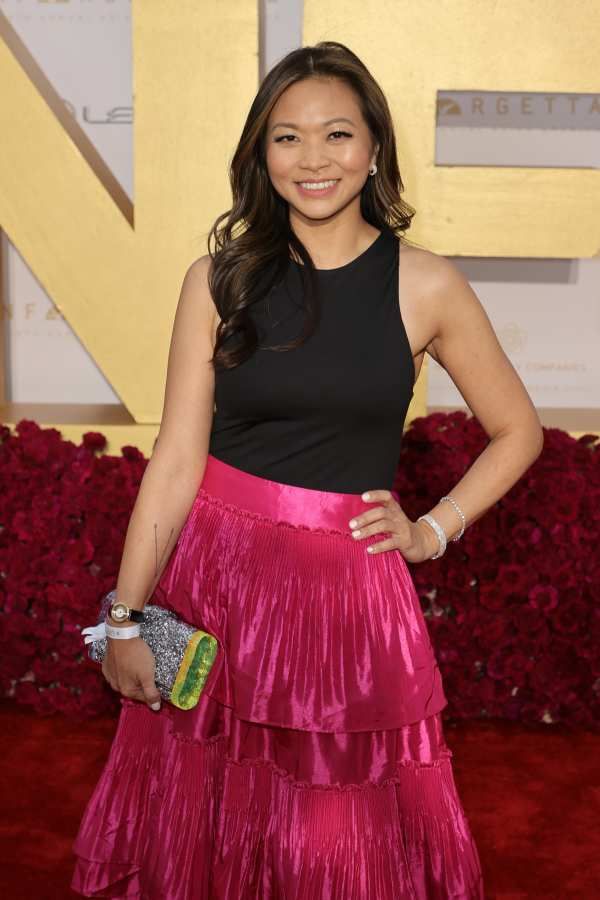Tatler speaks to the Malaysia-born Crazy Rich Asians and Disney's Raya and the Last Dragon co-writer about breaking into Hollywood and bringing authenticity to the screens
"Adele Lim has entered the Waiting Room for this meeting."
I admit her into our Zoom meeting and as soon as her video comes on, she greets me with a million-dollar smile and a big "Hiiii!" It's late into a weeknight for her but she's brimming with energy and like everything that she does in her work, 100 per cent in it and ready to hustle.
Read more: Asia's Most Influential: Jaz Lee, Adland's Young Gun Sets High Bar for Creatives Everywhere
The world knows Lim as the co-writer of the insanely successful 2018 romantic comedy-drama film Crazy Rich Asians and the recently Oscar-nominated Raya and the Last Dragon. While she's busy ticking items off her 'things to achieve' list, at the core, she's still very much the Malaysian girl who just loves to write.
"I've always written, I think. I have a vivid memory of the time when I was maybe three or four years old learning how to print and write my letters. I had a composition book and I was writing my own story in it. I remember writing it in the style of all those British childrens' books like Enid Blyton and those Peter and Jane books," Lim reminisces. "It was the most boring story! It was terrible, awful. It was about an ant."
Lim grew up in a multi-generational family home in Petaling Jaya, a satellite town of Kuala Lumpur, with plenty of memories that she'll always hold dear.
"We lived with my grandmother for a long time and all my cousins, aunts, and uncles were always there. It was a non-stop flow of people," she says. "My grandmother and my mother were very successful career people and also very active in the community, so there were always church people, community people, and friends, and there was always somebody cooking or somebody buying food. I'd wake up in the morning or from a nap in the afternoon to the sound of somebody pounding belacan (shrimp paste) or something frying in the kitchen signalling someone’s making food. My whole family is in Malaysia. I've got a lot of Malaysian pride."
See also: Rekha Sen on Her Fight for Citizenship for Children Born Abroad to Malaysian Mothers
She recalls honing her writing skills from way back when: "I'd write and present stories in primary school for elocution contest and in secondary school, I'd write all the choral reading poems for my class. I'd also write class plays—I did that even in junior college. I was an editor of one of my Sri Aman yearbooks and when I was an older teenager, I had a weekly column in The Star newspaper and it was my first paying writing job. I think I’m one of those very lucky people who just knew what I wanted to do from a very early age.
"My second career choice would have been a dancer. I did a lot of dancing! I was a backup dancer for Ning Baizura for a hot minute and I loved it. But not good enough to be a professional backup dancer," she muses.


